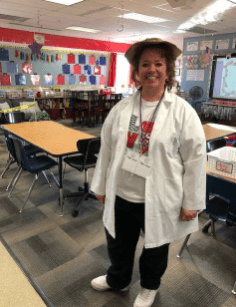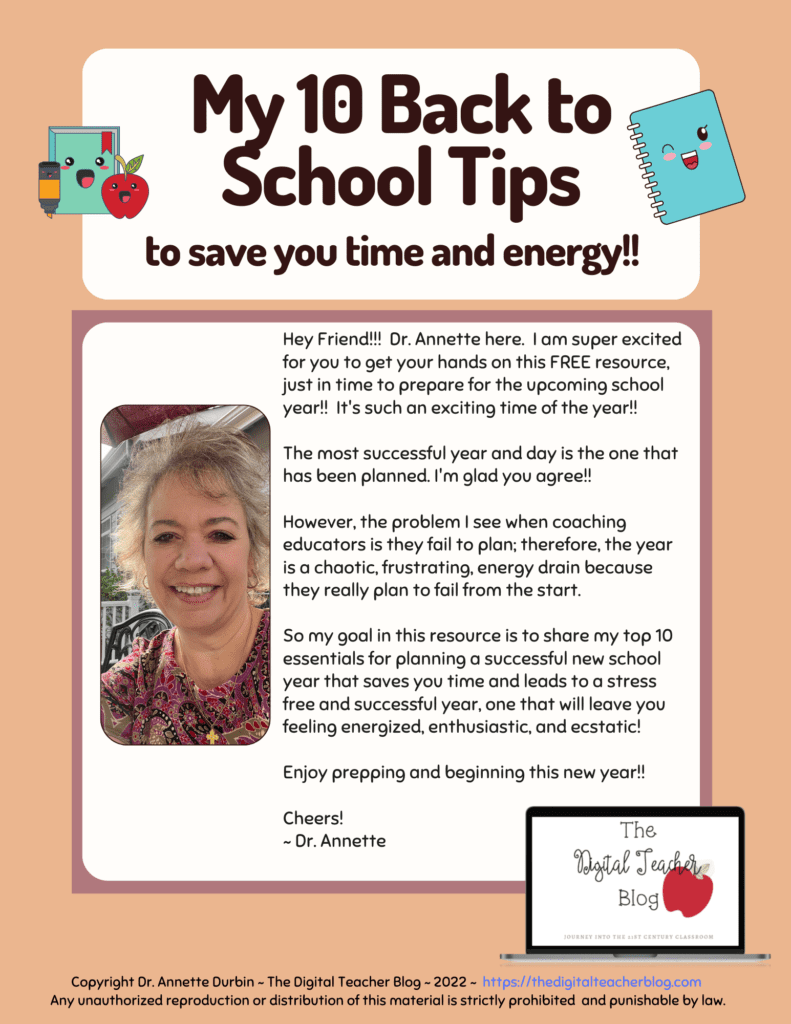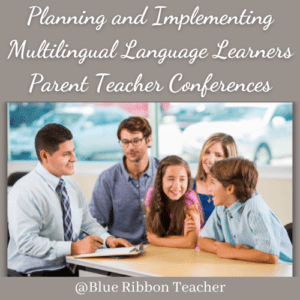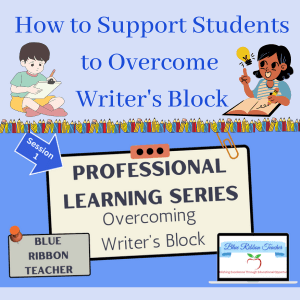Start a New School Year
Starting a new school year is an opportunity to begin again for everyone: teachers, students, staff, parents, bus drivers . . . It’s an opportunity to start fresh!
When I think about a new school year, I think about a New Year . . . like January 1. I often have new ideas I want to try out, new books to read aloud, and new lessons and units to implement. Along with these new instructional components, I also get new students and parents to share in this learning journey.
Although there is much excitement, there may also be some challenges that come along. Being prepared for any challenges ahead of time will certainly have a positive impact on the work you do in your classroom this year.
Start a New School Year: Professional Growth

This post may contain affiliate links, and I may earn compensation
when you click on the links at no additional cost to you.
What is your professional development goal for this year? Take time to consider specific curriculum, classroom management, or instructional strategies you’d like to focus. Start seeking out resources to begin your own professional growth.
A wise Indian proverb states:
“One who learns from one who is learning . . . drinks from a running stream.”
Being an educator is to engage in lifelong learning for oneself and to facilitate the love of learning in those we educate. Reach out to me for specific professional goals, book recommendations, online courses, and other learning you are interested in working on. I am happy to support you along your professional journey!
Start a New School Year: Overcoming Challenges
Starting a new year can bring a mix of emotions such as anxiety, fear, joy, excitement, loneliness, hope, and wonder. It is important to understand that these emotions may be exhibited in different ways by teachers, parents, and students.
Keep these emotions in mind as lessons are planned for the first few weeks of school and include fun getting to know you activities, games, and clear expectations to build a cohesive learning environment, as everyone gets settled into new routines, procedures, and schedules.

Back to School Books: My Favorites!
Profession Tip: Keeping a stash of books on hand is the perfect opportunity to build a positive classroom culture at the beginning of the school year AND use for reading and writing lessons. Below are some of my favorites!
Start a New School Year: Contact & Connect
Start your school year with success!! Reach out to others who can provide support. Whether this is your grade level team, other teachers, homeschool groups, other parents . . . it is helpful to have a “team approach” to teaching.
Many teachers work alone with a full class and four walls . . . at times it can be an overwhelming and an isolating feeling. Reaching out to others and developing a support network will provide some comfort knowing you are not alone when challenges arise.
Additionally, having another colleague available to bounce ideas, ask questions, and be a sounding board will be effective.
Don’t forget the student’s parents . . . reach out and connect with them before school starts. Introduce yourself and share something you are looking forward to this upcoming school year.
Parents always appreciate the opportunity to connect with their child’s teacher and feel part of the learning sequences. Partnering with parents and community businesses from the beginning of the school year will set up the student for success. This is a WIN – WIN conversation, as the student is the common denominator!

Start A New School Year: Educator Connector
Engaging with your school colleagues, parents, and community members will be a positive force for the work you do in the classroom. When others see you as an inclusive advocate for education, you will have more opportunities to expand the work you do and bring these learning opportunities into your classroom.
Start a New School Year: Related Resources
Starting a New School Year can be a challenge. I have found that when I connect with the various resources in my school community, my students benefit from each connection. Being an educator in today’s classroom means networking and connecting with others. Here are additional resources that can support your work.
Top 5 Tips for a Successful Year
Did you find Value?
I hope you did, because each week I do my best to provide valuable, educational resources that you can implement into your family and teaching context to save you time and energy, so you have more time and energy to do what you love . . .
teach and create family memories!
Start a New School Year: Final Thoughts
Teaching can be a challenging and lonely profession. Therefore, being the educator who reaches out to others helps you be the best educator you can be for the students in your classroom. Soon you’ll notice other educators, parents, and staff members will be reaching out to you for additional support in the educational work they do everyday.
Education is a two-way road . . . it’s a give and take. It’s simply teamwork:
Together Everyone Achieves More!


